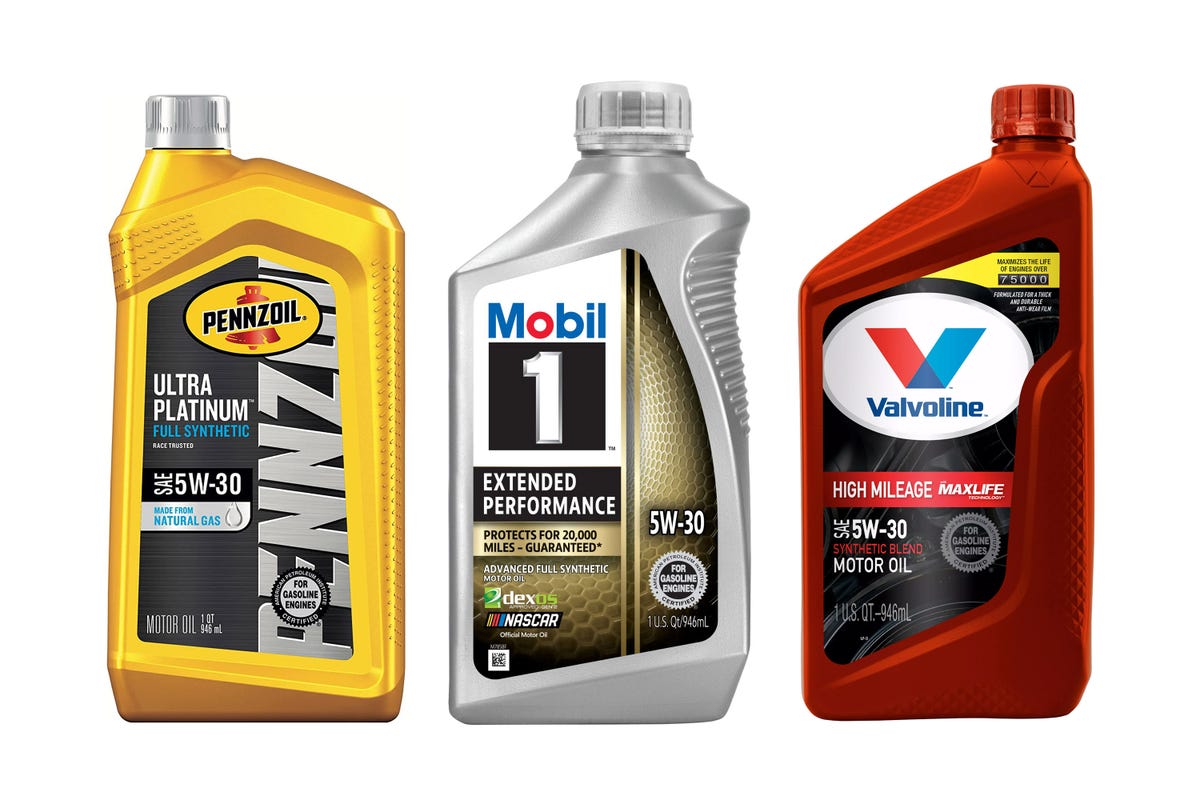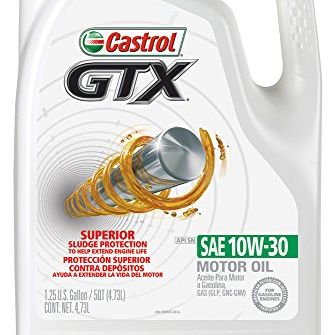The best engine oil for petrol cars is a full synthetic oil with the correct viscosity rating for your vehicle, such as 5W-30 or 10W-40. Always refer to your car’s manual for the manufacturer’s recommended oil type and viscosity.
Using the correct engine oil can improve fuel efficiency, protect the engine, and extend its lifespan. When it comes to choosing the best engine oil for petrol cars, it’s crucial to understand the specific needs of your vehicle. The right engine oil not only lubricates the engine’s moving parts but also helps to dissipate heat, reduce wear and tear, and improve overall engine performance.
Always consult your car’s manual for the recommended oil type and viscosity, and consider factors such as driving conditions, climate, and the age of your car. Making an informed choice about the best engine oil for your petrol car can lead to smoother performance and better fuel economy.
Introduction To Engine Oils For Petrol Cars
Choosing the right engine oil for your petrol car is crucial for maintaining optimal performance and longevity. Engine oils play a vital role in lubricating, cooling, and cleaning the internal components of the engine, ensuring smooth operation.
Importance Of Choosing The Right Oil
Using the correct engine oil helps to prevent wear and tear, reduce friction, and improve fuel efficiency. It also enhances engine durability and performance, ultimately extending the lifespan of your vehicle.
Petrol Vs. Diesel Engine Oils
Engine oils designed for petrol cars differ from those formulated for diesel engines. Petrol engine oils are specifically blended to meet the unique requirements of petrol engines, such as lower viscosity grades and different additives.

Credit: www.popularmechanics.com
Synthetic Vs. Mineral Oils
When it comes to choosing the right engine oil for your petrol car, the decision often boils down to synthetic vs. mineral oils. Each type of oil has its own set of benefits and specific use cases, so it’s important to understand the differences between them before making a choice.
Benefits Of Synthetic Oils
Synthetic oils offer several advantages over mineral oils, making them a popular choice for many car owners. Some key benefits of synthetic oils include:
- Enhanced Performance: Synthetic oils provide better lubrication and engine protection, especially in extreme temperatures.
- Improved Fuel Efficiency: They can help improve fuel economy due to reduced friction and better flow characteristics.
- Extended Drain Intervals: Synthetic oils often last longer between oil changes, which can result in cost savings over time.
- Resistance to Oxidation: They are less prone to breaking down and forming sludge, leading to cleaner engines and better overall performance.
When To Choose Mineral Oils
While synthetic oils offer numerous benefits, there are certain situations where mineral oils may be the more suitable option. Here are some instances when you might consider using mineral oils:
- Older Vehicles: Mineral oils may be better for older car engines that were designed to use conventional oils.
- Lower Operating Costs: If you’re on a tight budget and don’t drive in extreme conditions, mineral oils can be a more cost-effective choice.
- Shorter Driving Distances: For vehicles that undergo frequent stop-and-go driving, mineral oils can provide sufficient protection.
Understanding Viscosity Ratings
For petrol cars, understanding viscosity ratings is crucial when choosing the best engine oil. The right viscosity grade ensures optimal engine protection and performance, especially in varying temperatures. By selecting the appropriate viscosity, such as 5W-30 or 10W-40, car owners can maintain their engine’s efficiency and longevity.
Viscosity’s Role In Engine Health
Understanding viscosity ratings is crucial to choosing the right engine oil for your petrol car. Viscosity refers to the thickness or resistance to flow of a liquid, which in this case is the engine oil. It plays a vital role in maintaining engine health, as it determines the oil’s ability to lubricate and protect engine components. The Society of Automotive Engineers (SAE) rates engine oils based on their viscosity at different temperatures. The rating system is expressed in two numbers, such as 5W-30 or 10W-40. The first number indicates the oil’s viscosity at low temperatures, while the second number indicates its viscosity at high temperatures. Low-temperature viscosity is important because it affects the oil’s ability to flow and lubricate engine parts during cold weather. High-temperature viscosity, on the other hand, affects the oil’s ability to maintain its thickness and provide adequate lubrication at high engine temperatures.Reading The Viscosity Index
The viscosity index (VI) is another important factor to consider when choosing engine oil for your petrol car. It measures the oil’s ability to maintain its viscosity at different temperatures, which affects its overall performance. The higher the VI, the better the oil’s ability to maintain its viscosity in varying temperatures. This is particularly important for petrol cars that operate in extreme weather conditions, as it ensures the oil can provide adequate lubrication and protection to the engine components. When choosing engine oil for your petrol car, it’s important to consider both the viscosity rating and viscosity index to ensure you are selecting the best oil for your engine’s needs. It’s also important to choose oil that meets the manufacturer’s specifications and recommendations to ensure optimal performance and longevity of your engine.
Credit: www.cnet.com
Top Engine Oil Brands For Petrol Cars
When it comes to choosing the best engine oil for petrol cars, it’s important to consider the top engine oil brands that offer high-quality products. Selecting the right engine oil is crucial for maintaining the performance and longevity of your vehicle’s engine. Here, we will compare the market leaders and explore user reviews and testimonials of the top engine oil brands for petrol cars.
Comparing Market Leaders
Before selecting engine oil for your petrol car, it’s essential to compare the market leaders in the industry. Each brand offers specific formulations and benefits for petrol engines, and understanding these differences can help you make an informed decision. Let’s take a closer look at some of the top engine oil brands for petrol cars:
| Brand | Key Features | Price Range |
|---|---|---|
| Castrol | Magnatec, GTX High Mileage, Edge High Mileage | $16.07 – $38.99 |
| Royal Purple | High Performance Synthetic Oil | $33.78 – $57.69 |
| Pennzoil | High Mileage Motor Oil | $21.36 – $29.99 |
User Reviews And Testimonials
When looking for the best engine oil for your petrol car, it’s helpful to consider user reviews and testimonials. Real-life experiences from car owners can provide valuable insights into the performance and suitability of different engine oil brands. Here are some factors to consider based on user feedback:
- Performance: Look for reviews that highlight the engine’s smoothness, fuel efficiency, and overall performance after using a particular engine oil.
- Longevity: User testimonials can shed light on the longevity of the engine oil and its impact on the engine’s durability over time.
- Compatibility: Consider feedback regarding compatibility with different petrol car models and engine types.
High Mileage Oils For Older Petrol Cars
When it comes to older petrol cars, using the right engine oil is crucial for maintaining their performance and longevity. High mileage oils are specifically designed to address the needs of aging engines, offering a range of benefits that can help extend the life of the vehicle and improve overall performance.
Advantages For Aging Engines
High mileage oils contain special additives that help to rejuvenate aging engines, providing better lubrication and reducing wear and tear on critical engine components. They are formulated with seal conditioners to prevent oil leaks and reduce oil consumption, which are common issues in older vehicles. Additionally, these oils often have higher viscosity to compensate for engine wear, providing better protection against friction and heat.
Case Studies: Before And After
Before switching to high mileage oil, many drivers experience issues such as increased oil consumption, reduced engine performance, and oil leaks in their older petrol cars. However, after making the transition to high mileage oil, they report significant improvements in engine condition, reduced oil consumption, and better overall performance. These case studies demonstrate the tangible benefits of using high mileage oils for older petrol cars.

Credit: www.popularmechanics.com
Oil Additives And Their Impact
Looking for the best engine oil for petrol cars? Consider oil additives and their impact on engine performance. Choose high-quality synthetic oil for maximum protection and improved performance.
Oil Additives and Their Impact When it comes to engine oil, there are a multitude of options available in the market. However, choosing the right oil for your petrol car can be a daunting task. One of the factors to consider is oil additives and their impact on engine performance. What Additives Do for Your Engine Oil additives are chemical compounds added to engine oil to improve its performance and protect the engine from wear and tear. Some of the commonly used additives include detergents, dispersants, viscosity index improvers, anti-wear agents, and friction modifiers. Detergents and dispersants help keep the engine clean by preventing the buildup of sludge and deposits. Viscosity index improvers help the oil maintain its viscosity at different temperatures, ensuring optimal lubrication. Anti-wear agents protect the engine from metal-to-metal contact, while friction modifiers reduce friction and improve fuel efficiency. Pros and Cons of Additives While oil additives can improve engine performance, they also have their downsides. For instance, some additives can cause engine deposits if used in excessive amounts. Overuse of viscosity index improvers can result in reduced oil pressure and increased engine wear. It is important to note that not all additives are suitable for all engines. Some engines may require specific additives, while others may not benefit from them at all. Therefore, it is crucial to consult your car’s owner manual or a professional mechanic before using any oil additives. In conclusion, oil additives can have a significant impact on engine performance and longevity. However, it is important to use them in moderation and choose the right ones for your specific engine. Consultation with a professional mechanic can go a long way in helping you make the right decision.The Role Of Oil Certifications
When it comes to choosing the best engine oil for petrol cars, understanding the role of oil certifications is crucial. Industry standards provide a framework for evaluating the quality and performance of engine oils, ensuring that they meet specific requirements for different types of engines.
Certifications play a key role in determining the suitability of engine oil for petrol cars. Look for certifications such as API (American Petroleum Institute) Service Symbol “S” for gasoline engines, which indicates that the oil meets the latest industry standards for petrol-powered vehicles.
Changing Your Petrol Car’s Oil
For petrol cars, choosing the right engine oil is crucial. Opt for synthetic oil for enhanced performance and protection. Consider brands like Castrol Edge High Mileage or Royal Purple for optimal engine care.
Best Practices For Oil Changes
Regular oil changes are crucial for maintaining your petrol car’s engine health. Follow the manufacturer’s recommendations for oil type and change intervals.
Ensure the engine is warm before draining the oil to allow for easier and more complete drainage.
Diy Vs. Professional Oil Change
DIY Oil Change:
- Cost-effective option
- Requires basic tools and knowledge
- Ensures control over the quality of oil and filter used
Professional Oil Change:
- Convenience and time-saving
- Expertise and precision in oil change process
- Access to specialized equipment and quality oils
Faqs On Petrol Engine Oils
Discovering the ideal engine oil for petrol cars can be a daunting task. With various options available, synthetic oils like Castrol Edge or Pennzoil High Mileage are popular choices known for providing superior protection and performance. Conducting thorough research and consulting with professionals can help determine the best fit for your vehicle.
Addressing Common Concerns
When it comes to choosing the best engine oil for petrol cars, there are common questions that often arise. Addressing these concerns can help car owners make informed decisions.
Expert Answers To Frequent Questions
- What is the best petrol engine oil? The best engine oil for petrol cars offers maximum protection, low temperature performance, and extreme performance.
- Which oil brand is best to use on a gasoline engine? Popular brands like Castrol, Royal Purple, and Pennzoil are known for their high-quality engine oils.
- Mineral or synthetic engine oils? Synthetic oils generally have better performance in extreme temperatures compared to mineral oils.
- What engine oil should I use in my petrol car? It is recommended to refer to your car’s manual for the manufacturer’s specifications on the type of engine oil to use.
Addressing Common Concerns
When it comes to choosing the best engine oil for petrol cars, there are common questions that often arise. Addressing these concerns can help car owners make informed decisions.
Expert Answers To Frequent Questions
- What is the best petrol engine oil? The best engine oil for petrol cars offers maximum protection, low temperature performance, and extreme performance.
- Which oil brand is best to use on a gasoline engine? Popular brands like Castrol, Royal Purple, and Pennzoil are known for their high-quality engine oils.
- Mineral or synthetic engine oils? Synthetic oils generally have better performance in extreme temperatures compared to mineral oils.
- What engine oil should I use in my petrol car? It is recommended to refer to your car’s manual for the manufacturer’s specifications on the type of engine oil to use.
Conclusion: Making An Informed Decision
For making an informed decision on the best engine oil for petrol cars, consider factors like viscosity, synthetic or mineral, and manufacturer certifications. To ensure optimal performance and protection, choose an engine oil that meets your car’s specific needs and driving conditions.
Summarizing Key Takeaways
Key Takeaways:
- Choosing the right engine oil is crucial for your petrol car’s performance.
- Consider factors like viscosity, certifications, and your car’s age.
- Synthetic oils offer better performance in extreme temperatures.
- Regularly check and change your engine oil as per manufacturer recommendations.
Next Steps For Car Owners
For car owners:
- Consult your car’s manual for the recommended engine oil type and viscosity.
- Choose a reputable brand that meets industry standards and certifications.
- Consider your driving habits and environmental conditions when selecting engine oil.
- Regularly monitor your oil levels and schedule routine oil changes for optimal engine health.
Frequently Asked Questions
What Is The Best Petrol Engine Oil?
The best petrol engine oil varies by car. Look for brands like Castrol, Royal Purple, and Pennzoil for high-quality options.
Which Oil Is Best For Petrol?
The best oil for petrol cars depends on the car manufacturer’s recommendations. However, synthetic oil is generally considered better than conventional oil due to its better performance in extreme temperatures. Some recommended brands include Castrol GTX, Pennzoil, and Royal Purple.
Always check your car’s manual for specific oil recommendations.
What Oil Do I Put In My Petrol Car?
For a petrol car, use the recommended engine oil specified in the owner’s manual. Ensure it meets the API and SAE standards for your vehicle’s engine.
Is 5w30 Or 5w40 Better For Petrol Engines?
5W30 is better for cold temperatures, while 5W40 is better for high temperatures and older engines.
Conclusion
To choose the best engine oil for your petrol car, consider factors like viscosity and certifications. Whether mineral or synthetic, make an informed decision for optimal engine performance. Consult expert recommendations and online resources to make the right choice for your vehicle’s longevity and efficiency.

